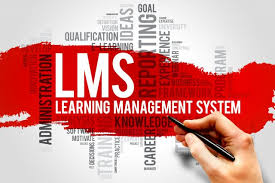Using Learning Management Systems to Streamline Teaching in Pakistan
- February 18, 2026
The integration of technology in education has revolutionized the way teaching and learning occur. Learning Management Systems (LMS) are at the forefront of this transformation, providing educators with powerful tools to manage and deliver content, track student progress, and facilitate communication. In Pakistan, where educational challenges include large class sizes, resource limitations, and varying levels of access to quality education, LMS platforms can play a pivotal role in streamlining teaching and improving educational outcomes.
What is a Learning Management System (LMS)?
A Learning Management System is a software application that provides a framework for managing all aspects of the learning process. It enables educators to create, deliver, and assess educational content in a digital format. LMS platforms support various instructional strategies and can be accessed anytime, anywhere, making them an ideal solution for diverse learning environments.
Benefits of Using LMS in Pakistan
- Enhanced Accessibility and Flexibility
- Remote Learning: LMS platforms allow students to access course materials and participate in learning activities from any location. This is particularly beneficial in Pakistan’s remote and rural areas, where access to quality education can be limited.
- Self-Paced Learning: Students can learn at their own pace, revisiting materials and concepts as needed. This flexibility helps accommodate different learning speeds and styles.
- Efficient Content Management and Delivery
- Centralized Resources: Educators can store all instructional materials in one place, making it easy to update and distribute content. This ensures that all students have access to the latest information.
- Multimedia Integration: LMS platforms support various types of content, including videos, interactive simulations, quizzes, and e-books. This variety helps cater to different learning preferences and keeps students engaged.
- Streamlined Administrative Tasks
- Automated Grading: Many LMS platforms offer tools for automated grading of assignments and quizzes, saving teachers valuable time and providing immediate feedback to students.
- Attendance Tracking: Digital attendance tracking simplifies record-keeping and allows teachers to monitor student participation more effectively.
- Improved Communication and Collaboration
- Discussion Forums: LMS platforms often include discussion forums where students can interact with each other and with teachers, fostering a collaborative learning environment.
- Messaging and Notifications: Built-in messaging systems enable efficient communication between teachers and students, ensuring that important announcements and feedback are promptly delivered.
- Data-Driven Insights
- Analytics and Reporting: LMS platforms provide detailed analytics on student performance and engagement. This data helps educators identify areas where students may be struggling and adjust instruction accordingly.
- Personalized Learning Paths: Based on data insights, teachers can create personalized learning paths for students, addressing their individual needs and improving learning outcomes.
Implementing LMS in Pakistani Schools: Challenges and Solutions
- Infrastructure and Connectivity
- Challenge: Limited access to reliable internet and digital devices in some areas.
- Solution: Governments and private organizations can collaborate to improve infrastructure and provide affordable devices. Schools can also implement blended learning models, combining online and offline activities.
- Teacher Training and Support
- Challenge: Teachers may lack the necessary skills to effectively use LMS platforms.
- Solution: Professional development programs and ongoing support can equip teachers with the skills needed to integrate LMS into their teaching practices. Peer mentoring and online communities of practice can also be valuable resources.
- Cultural and Attitudinal Barriers
- Challenge: Resistance to change and skepticism about the effectiveness of digital learning tools.
- Solution: Highlighting success stories and demonstrating the tangible benefits of LMS can help shift perceptions. Engaging stakeholders in the implementation process ensures that their concerns and suggestions are addressed.
- Sustainability and Scalability
- Challenge: Ensuring that LMS implementation is sustainable and can be scaled across various educational institutions.
- Solution: Developing clear policies, securing funding, and fostering partnerships with edtech companies can support sustainable and scalable LMS integration.
Learning Management Systems have the potential to significantly streamline teaching and enhance learning experiences in Pakistan. By providing flexible, accessible, and efficient tools for content delivery, communication, and assessment, LMS platforms can address many of the challenges faced by the education sector. Successful implementation requires collaboration, investment in infrastructure, and ongoing support for educators. Embracing LMS technology can lead to more effective teaching practices and improved educational outcomes for students across Pakistan.


